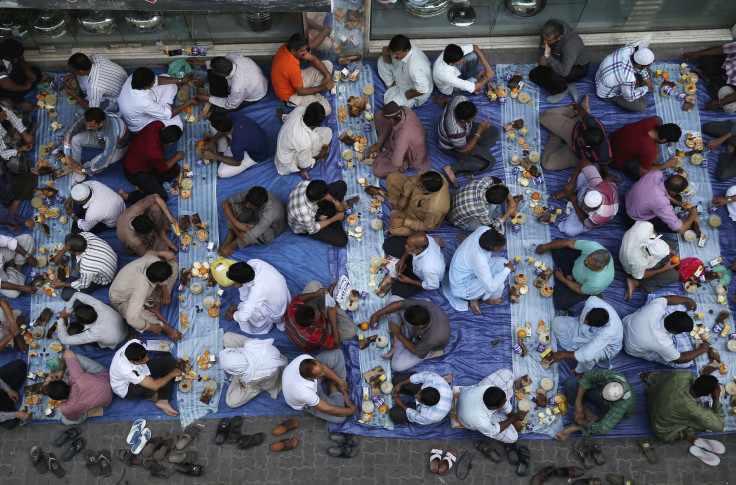Ramadan 2016: How The Muslim Holy Month Of Fasting Affects Business, The Economy

Even before Ramadan began Monday, businesses throughout parts of the Islamic world were feeling the effects of the Muslim holy month of fasting.
The Bloomberg GCC 200 Index fell 0.3 percent Sunday. The index tracks 200 of the largest stocks in the Gulf Cooperation Council, which includes Saudi Arabia, Kuwait, Bahrain, Qatar, the United Arab Emirates and Oman. Meanwhile, the volume of shares trading on Dubai’s DFM General Index reached just 55 percent of the 20-day average, Bloomberg reported.
Muhammad Shabbir, the head of equities at Rasmala Investment Bank Ltd., called Ramadan “an empty period.”
During Ramadan, Muslims fast from sunup to sundown. Abstaining from food and drink for prolonged periods taxes the body and brain, and many countries reduce official working hours to accommodate employees. United Arab Emirates labor law cuts the work day by two hours for Muslims and non-Muslims alike. In Sudan, employees of the National Civil Service work an hour less each day during Ramadan.
It is unsurprising that business activities and productivity would drop as a result. But how significant is that decline? As it turns out, it’s substantial.
Ramadan has a negative impact on GDP growth, Filipe Campante and David Yanagizawa-Drott, public policy professors at the Harvard Kennedy School of Government, determined in a paper published last year.
The impact of Ramadan on national economies fluctuates with the number of hours spent fasting: http://t.co/0KznRSujTA pic.twitter.com/PbXbshTZlL
— Foreign Affairs (@ForeignAffairs) July 19, 2015
Campante and Yanagizawa-Drott parsed more than six decades’ worth of data across numerous countries. They compared it with different lengths of the fasting day, which varies according to a country’s latitude and the time of year at which Ramadan occurs. Thanks to these inherent variations in Ramadan, they were able to determine that longer stretches of fasting caused, and were not merely correlated with, a decrease in economic output growth.
“Our estimates imply a substantial economic cost stemming from more demanding Ramadan fasting,” they wrote in their paper, which was published in the Quarterly Journal of Economics. A longer fast had a negative effect on output growth no matter how they measured it — GDP per worker, per capita or in total. For every hour that the fast increased, economic growth declined by 0.7 percent, they found.
They also found, curiously, that the longer the length of the requisite fast, the happier Muslims reported being. Their conclusion was that even though Ramadan can put a damper on economic growth, it bolstered people in less “nonpecuniary” ways.
At a granular level, the impact of Ramadan varies by sector. It’s expected to support oil prices because of an increase in driving, Reuters reported. For broadcast networks in the Middle East, viewership jumps during Ramadan, thanks to special shows aired during the holy month.
Sales of dates, with which the fast is traditionally broken, surge along with other foods linked to Ramadan — desserts, chocolates given as gifts, the marketing research firm Nielsen has found. And for developers who create Ramadan-related apps, the month of fasting is actually a time to feast.
© Copyright IBTimes 2025. All rights reserved.






















